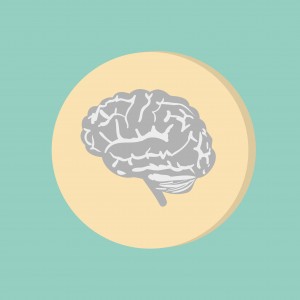 Cognitive Behavioral Therapy (CBT Therapy) for depression and anxiety is focused on the present, involves a collaborative approach with patient and therapist, and works towards specific treatment goals. Cognitive Behavioral Therapy (CBT Therapy) treatment begins with identifying core beliefs about oneself and the world and likewise identifying automatic thoughts that are based on and confirm these core beliefs. Faulty thinking and distorted cognitions lead to feelings of depression and/or anxiety, and are the basis around which treatment is focused. Through identifying these thoughts and how they lead to the unwanted symptoms, one can eventually challenge and change this cycle, thereby improving mood, symptoms, and control over behaviors.
Cognitive Behavioral Therapy (CBT Therapy) for depression and anxiety is focused on the present, involves a collaborative approach with patient and therapist, and works towards specific treatment goals. Cognitive Behavioral Therapy (CBT Therapy) treatment begins with identifying core beliefs about oneself and the world and likewise identifying automatic thoughts that are based on and confirm these core beliefs. Faulty thinking and distorted cognitions lead to feelings of depression and/or anxiety, and are the basis around which treatment is focused. Through identifying these thoughts and how they lead to the unwanted symptoms, one can eventually challenge and change this cycle, thereby improving mood, symptoms, and control over behaviors.
The basic cycle involves thoughts, which lead to feelings, which lead to the behaviors that we choose. Usually, core beliefs and basic assumptions about the world are the foundation from which automatic thoughts and cognitive distortions develop over time. The core belief is the lens through which the person perceives all sorts of situations he/she is faced with and, therefore, his/her automatic thoughts follow these appraisals, thereby setting the stage for reactions (emotions, physiological experiences, and behaviors). Some of these behaviors may or may not include what is referred to as self-fulfilling prophecies, which basically refer to one experiencing that which one expected without the awareness that he/she inadvertently played a significant role in actually CREATING this outcome. Confused yet? This may all sound pretty confusing, but the bottom line is very positive: you can make a difference in how you think, feel, and behave.
Accordingly, in relationships what each partner brings to the table (as far as core beliefs about self, world, and others, automatic thinking styles, perceptual patterns, family of origin histories, etc) create a dynamic interflow of perceptions and assumptions between partners. Often, these perceptions and assumptions can create problems, especially when they are based on faulty thinking or cognitive distortions (which we all have from time to time). It is important to cultivate compassion and clear communication in relationships in order to create and maintain awareness of what each person’s role is when there are difficulties encountered. The issue is not whether we argue in relationships; in fact, it would be unusual if a couple never argued. Rather, it is how we communicate during/after arguments and how we can use this in a way to prevent similar themes from recurring. Most couples find that they get stuck when they have those recurring arguments that don’t seem to go anywhere and never seem to get solved.
Entering therapy when problems first start to be noticed is a great way to “nip issues in the bud” before they become recurrent and troublesome. thereby improving mood and control over behaviors.
Core beliefs and basic assumptions about the world are the foundation from which faulty thinking and cognitive distortions develop over time. For example, an anxious patient may have a core belief about him/herself as being bad, inadequate, and/or defective. This individual may also think that other people are superior and critical. The core belief is the lens through which the person perceives all sorts of situations he/she is faced with and, therefore, his/her automatic thoughts follow these appraisals, thereby setting the stage for reactions (emotions, physiological experiences, and behaviors).
Dr. Dardashti’s new relationship self-help book is now available on Amazon. If you always wanted to understand the different ways in which a “me” issue and an “us” issue play a role in troubling dynamics, this is book is for you. Read more here: http://goo.gl/aziGTk





